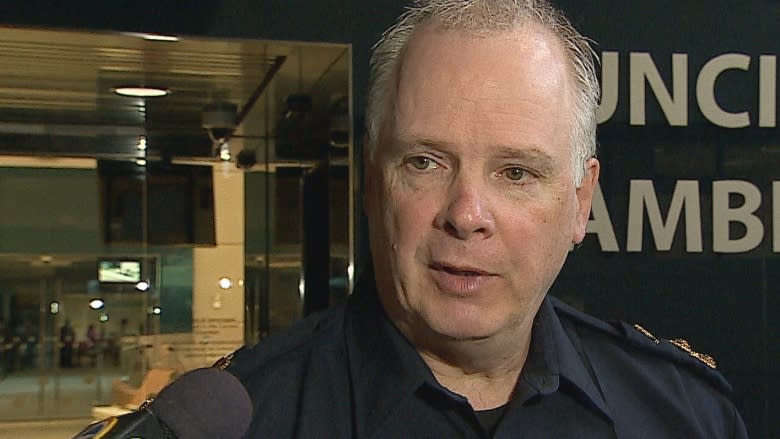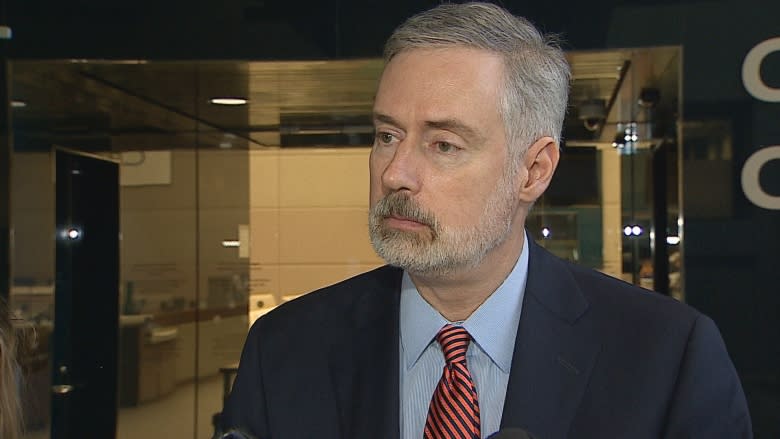'I think Calgarians do get frustrated': Chief says police struggle to keep up with demand
Calgary's police chief says officers are struggling to respond to lower-priority calls in a reasonable time and give Calgarians the face-to-face interactions they still expect in an increasingly digital age.
"They want to see us. They want to talk to an officer. They want to hear their problem is being listened to by another person," Roger Chaffin told city council Wednesday.
"That is under a lot of pressure now, given the number of officers we have, the high levels of calls for service, the complexities of policing. Everything means less time — less face time with officers."
- 'We can't arrest our way through our addiction problems,' says Calgary police chief
The police service has developed a growing presence on social media and introduced some new methods of online crime reporting, but Chaffin said that can't satisfy the desire citizens have for old-school interactions when they have concerns or are the victims of minor crimes.
"They want to know there's empathy out there, that there are solutions coming," he said.
His comments came during the Calgary Police Service's annual report to council, in response to a question from Coun. Richard Pootmans, who noted a declining number of respondents in citizen satisfaction surveys saying they believe the service is adequately staffed.
"Is that a perception issue that we need to deal with?" Pootmans said. "Or are there some operating realities that we need to perhaps change?"
Chaffin said about 60 per cent of calls to police are deemed "priority two" or "priority three" calls and it's simply impossible to respond to all of them in the way people want, given current staffing levels.
"Some of those we don't get to for many, many hours," the police chief said.
"Some of them we don't get to at all, because of the call load. And so I think Calgarians do get frustrated."
The CPS employs roughly 2,900 people, including about 2,100 sworn officers and 800 civilian staff members.
Stress, fatigue, trauma
Chaffin said another challenge for the service is addressing the impacts of round-the-clock police work on officers' well-being.
It's not a new problem, he noted, but one that is better understood and less stigmatized than it was 20 years ago.
"We would never see members (at that time) put their hand up and say, 'Hey, I have a stress problem.' Now it's common language," Chaffin said.
"And when we hear it, we take it seriously. We make sure they're getting the help they need."
Chaffin said CPS has a duty to "rethink our deployment models" in order to address the impacts of shift work, post-traumatic stress and chronic fatigue.
"Those are not wishful lists now," he said. "Those are obligations."
Pootmans, who's not running for re-election in October's municipal election, noted the police service didn't receive a budget increase in the past year and said he's not sure Calgary's finances will have much room for an expanded budget next year, either.
"It's going to be a function of priorities and allocating the funds," he said.
"There are numerous departments that are seeking increases in funding."



